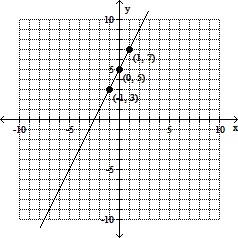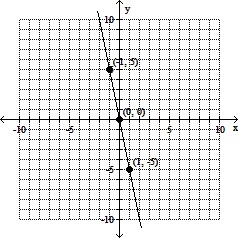Provide an appropriate response.Can the sample variance ever be a negative number? If so, for what types of data? If not, why not? Can the sample variance ever be zero? If so, for what types of data? If not, why not? Explain your reasoning.
What will be an ideal response?
Answers will vary. Possible answer: The variance can never be a negative number since it is a sum of squared terms each of which must be positive or zero. It can be zero only if all observations are identical, in which case all deviations from the mean will be zero.
You might also like to view...
Simplify.280 ÷ 14 - (5 + 4)
A. 19 B. 11 C. 15 D. 56
Complete the ordered pairs so that each is a solution of the linear equation. Then plot each solution and graph the equation by connecting the points by a straight line.y = -2x + 5(0, )(1,
)(1, )(-1,
)(-1, )
)
A. (0, 5)
(1, 3)
(-1, 7)
B. (0, 5)
(1, 7)
(-1, 3)
C. (0, -5)
(1, -7)
(-1, -3)
D. (0, 0)
(1, -5)
(-1, 5)
Find the mean, median, mode, and midrange for the given data. Round to the nearest tenth if necessary.
A. mean = 23.7, median = 22.4, mode = 27.5, midrange = 6.7 B. mean = 23.2, median = 22.4, mode = 22.4, midrange = 6.7 C. mean = 23.2, median = 22.4, mode = 22.4, midrange = 24.15 D. mean = 23.2, median = 24.8, mode = 22.4, midrange = 24.15
Find the product.10 × 18.073
A. 1807.3 B. 200.73 C. 1757.3 D. 180.73